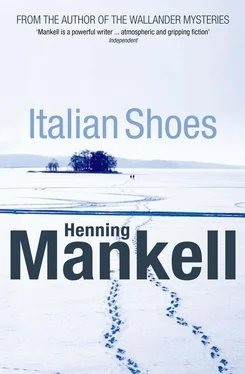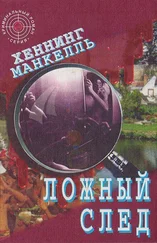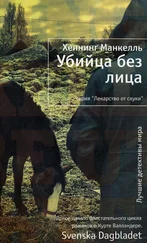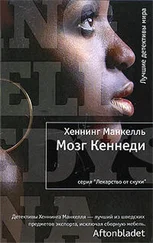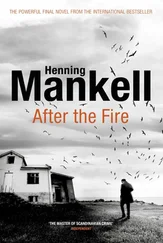‘I slammed the door of your caravan as I left. I shouldn’t have done that. I couldn’t handle my confusion. I apologise for that. I hope we shall not continue with our lives pretending the other doesn’t exist.’
It was not a good letter. I discovered two days later just how badly it had been received. The telephone rang in the middle of the night. I groped around half asleep, stumbling over my frightened animals, before I was able to lift the receiver. It was Louise. She was furious. She was shouting so loudly, she almost burst my eardrums.
‘I’m so angry with you. How could you write such a letter? You slam the door shut the moment things turn unpleasant.’
I could hear that she was slurring her words. It was three in the morning. I tried to calm her down. That only made her more furious. So I said nothing. I let her carry on ranting.
This is my daughter, I kept telling myself. She’s saying what she needs to say. And I knew my letter was not a good one.
I don’t know how long she carried on screaming down the line. But suddenly, in mid-sentence, there was a click and the call was over. The silence echoed. I stood up and opened the door to the living room. The anthill was growing bigger. Or so I fancied, at least. But do anthills really grow during the winter when the insects are hibernating? I knew as little about that as I did about the best way to respond to Louise. I understood why she was angry. But did she understand me? Was there anything to understand, in fact? Can you regard a grown woman, whose existence you knew nothing about, as your daughter? And who was I to her?
I got no more sleep that night. I was gripped by a fear that I was unable to cope with. I sat at the kitchen table, clutching at the blue waxed tablecloth that had covered it ever since Grandmother’s day. I was overwhelmed by emptiness and powerlessness. Louise had dug her claws deep into my innermost being.
I went out as dawn broke. It seemed to me it would have been better if Harriet had never appeared out there on the ice. I could have lived my life without a daughter, just as Louise could have got by without a father.
Down by the jetty I wrapped myself up in my grandfather’s old fur coat and sat down on the bench. Both the dog and the cat had wandered off on their separate ways, as their tracks in the snow showed. They seldom went anywhere together. I wondered if they sometimes lied to each other about their intentions.
I stood up and bellowed straight out into the mist. The noise died away into the grey light. My routine had been disturbed. Harriet had appeared from nowhere, and turned my life upside down. Louise had shouted a truth into my ear, and I had no defence against it. Perhaps Agnes would also attack me with unexpected fury in due course?
I flopped back down on to the bench. I was reminded of Grandma’s words, her fear. If you went out walking in the mist, you might disappear and never be heard of again.
I had lived alone on this island for twelve years. Now it felt as if it had been invaded by three women.
I ought really to invite them all to visit me when summer comes. One beautiful summer’s evening they could take it in turns to attack me. Eventually, when there was barely anything left of me, Louise could don her boxing gloves and knock me out for the final count.
They would be able to count up to a thousand, and still I wouldn’t get up.
A few hours later, I opened up my hole in the ice and stepped into the freezing cold water. This morning I forced myself to stay there for an unusually long spell.
Jansson turned up on time but he had nothing for me, nor I for him. Just as he was about to leave, I remembered that it was ages since he had complained of having toothache.
‘How are your teeth?’
Jansson looked surprised.
‘What teeth?’
I asked no more. The hydrocopter vanished into the mist.
On my way back from the jetty, I paused by the boat and raised the tarpaulin once again. The hull was going rotten. If I left it untended for another year, it would be beyond repair.
That same day I wrote another letter to Louise. I apologised for everything I could remember and also for everything I’d forgotten, and for the annoyance I would cause her in the future. I concluded the letter with a few lines about the boat:
‘I have an old wooden boat that used to be my grandfather’s. It’s on trestles under a tarpaulin. It’s a disgrace that I treat the boat so badly. I just haven’t looked after it properly. I often think that ever since I came to live on this island, I’ve also been lying on trestles under a tarpaulin. I’ll never be able to sort out the boat until I’ve sorted out myself.’
A couple of days later I gave the letter to Jansson, and the following week he brought a reply. After a few days of thaw, it had turned cold again. Winter refused to loosen its grip. I sat down at the kitchen table to read the letter. I had shut the cat and the dog out — sometimes I simply couldn’t bear to see them.
Louise wrote: ‘I sometimes feel that I’ve lived my life with dry and chapped lips. Those are words that came to me one morning when life felt worse than usual. I don’t need to tell you about the life I’ve led because you already have an indication of what it’s been like. Filling in the details would change nothing. Now I’m trying to find a way of living with the knowledge that you exist, the troll who emerged from the forest that turned out to be my father. Even though I know Harriet ought to have explained, I can’t help feeling upset with you as well. When you stormed off, it felt as if you’d punched me in the face. At first it was a relief you’d gone. But the feeling of emptiness became too much. And so I hope we might be able to find a way of becoming friends at least, one of these days.’
She signed the letter with an ornate L.
What a mess, I thought. Louise has every reason in the world to direct her anger at the pair of us.
The winter wore on, with letters travelling back and forth between the caravan and the island. And occasionally I would receive a letter from Harriet, who was back in Stockholm by now. It was not explained how she got there. She said she felt very tired, but the thought of the forest pool and the fact that Louise and I had met at last kept her going. I asked questions about her condition, but never received an answer.
Her letters were characterised by quiet, almost reverential resignation, in stark contrast to what Louise wrote, where between the lines there was always a hint of imminent anger.
Every morning when I woke up, I resolved to start making a serious attempt to put my life in order. I could no longer allow the days to slide past without anything constructive being done.
But I got nowhere. I made no decisions. I occasionally lifted the tarpaulin over the boat and had the feeling that I was in fact looking at myself. The flaking paint was mine, as were the cracks and the damp. Perhaps also the smell of wood slowly rotting away.
The days were getting longer. Migratory birds started returning. The flocks usually passed by during the night. Through my binoculars I could see seabirds on the outermost edge of the ice.
My dog died on 19 April. I let him out as usual when I came downstairs to the kitchen in the early morning. I could see that he had difficulty in getting out of his basket, but I thought he would live through the summer. After my usual dip through my hole in the ice, I went down to the boathouse to look for some tools I needed to repair a leaking pipe in the bathroom. I thought it was odd that the dog hadn’t appeared, but didn’t go in search of him. It wasn’t until around dinner time that I realised he hadn’t been seen all day. Even the cat seemed concerned. She was sitting on the steps outside the front door, looking pensive. I went out and called for him, but he didn’t appear. I realised something must have happened. I put on a jacket and started searching. After almost an hour I found him on the far side of the island, by the unusual rock formations that rose up out of the ice like gigantic pillars. He was lying in a little depression, sheltered from the wind. I don’t know how long I stood looking at him. His eyes were open, glistening like crystals — just like the seagull I had found earlier in the winter, frozen to death by the jetty.
Читать дальше
